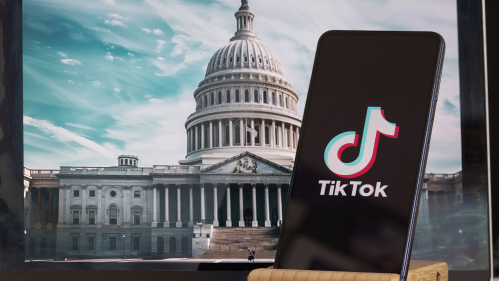President Biden signed a bill to force the sale of TikTok by ByteDance, the Chinese company that owns it, or ban the widely popular video app in the United States.
Ellen P. Goodman, a Distinguished Professor at Rutgers Law School and cofounder and codirector of the Rutgers Institute for Information Policy and Law, talks about how we got here.
What are the concerns surrounding TikTok that led to bipartisan support in Congress for the bill?
The stated concerns are threefold: the Chinese government could obtain data about American citizens, the app could be used to spread propaganda to American citizens through algorithmic amplification, and related national security concerns around surveillance and disruptive communications.
If I have TikTok on my phone, should I be concerned? Is my information at risk and is there something I should do to protect myself?
The truth is that American citizens' data can be bought and sold regardless of what social media platform they use or who owns it. If the Chinese government wants personal data concerning American citizens, it can purchase it from data collectors without having any ownership interest in a social media platform (an accompanying new law makes it harder for foreign adversary-owned companies to purchase data from a data broker). Unfortunately, without stronger data protection laws, there is very little that individuals can do to protect their data, except for making sure that their privacy settings are set as strong as they can be. In some states, including New Jersey, there are state data protection laws that give individuals greater control of the collection and use of their personal data.
What will it look like if TikTok is banned in the United States? What will it mean for the 170 million users of the app?
There is an opportunity for ByteDance to spin off TikTok to another buyer. It’s possible that users won’t really notice a significant change in the product. It’s also possible that ByteDance will close down TikTok in the U.S. Between now and the resolution of this situation one way or another, one might see content in one’s feed changing.
How is the U.S. able to do this? Is there legal precedent or legal ramifications for forcing the sale of a company that operates in the United States?
We will see if the restrictions on TikTok survive First Amendment challenge. There are precedents for restrictions on U.S. foreign ownership control of or interests in media and telecommunications companies, as well as other national security-related restrictions on foreign ownership in American companies.
What do you think are the lessons that will come out of this?
I hope that one of the things that comes out of this is a greater willingness of the U.S. Congress to legislate in the area of data protection. The harms that many have identified in social media, especially for children, are downstream of a business model that relies on sucking up huge amounts of personal data. Unfortunately, the TikTok divestment order doesn’t do anything about this problem. Hopefully, there will be a greater understanding about the algorithmic amplification of communications and the need for greater child protection that result in legislation better suited to address the problems.



